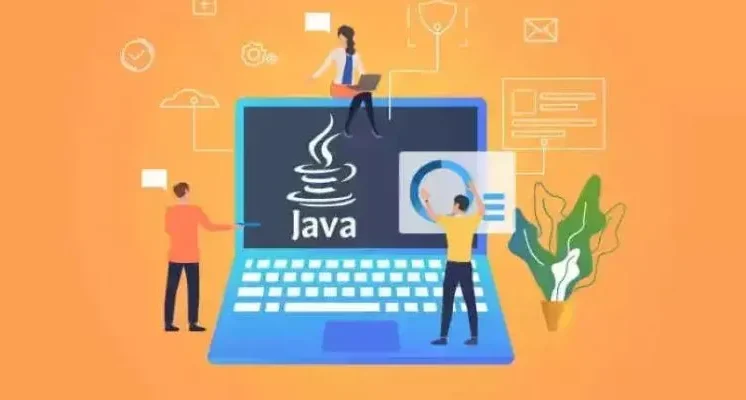How Can You Prepare for a Java Developer Job Interview?

Java remains one of the most sought-after programming languages in the tech world, powering everything from enterprise applications to Android development. If you’re aiming for a Java developer role, the interview process can be both exciting and nerve-wracking. The key to success? Preparation. If you feel your foundation needs strengthening, enrolling in Java Training in Chennai can help you solidify your knowledge and build confidence.
Whether you’re a beginner or a seasoned developer brushing up on your skills, it’s crucial to approach your interview with a well-rounded strategy. Let’s walk through how you can ace your Java developer job interview, with insights that will help you shine.
1. Master the Fundamentals of Java
No matter how advanced the role, a strong command of Java basics is essential. Interviewers often start with fundamental questions to gauge your understanding of core concepts. Be sure to have a firm grasp of:
- Object-Oriented Programming principles includes inheritance, polymorphism, encapsulation, and abstraction.
- Core Java concepts, including multithreading, exception handling, collections framework, and JVM architecture.
- Writing clean, efficient, and reusable code.
2. Practice Problem-Solving
Coding interviews often include algorithm and data structure problems. Brush up on concepts like arrays, linked lists, stacks, queues, trees, and graphs. Leverage online platforms like LeetCode, HackerRank, or CodeChef to practice solving real-world problems.
Understanding how Java implements these data structures will also be advantageous. For example, knowing the difference between an ArrayList and a LinkedList or the nuances of Java’s HashMap will set you apart.
For those planning to dive deeper into analytics or advanced tech roles, exploring a Data Science Course in Chennai can complement your Java expertise by adding skills like data manipulation and analysis.
3. Be Ready for Framework-Specific Questions
Java is widely used with frameworks like Spring, Hibernate, and Struts. Companies often look for candidates who are familiar with these frameworks as they streamline development and simplify coding tasks.
- Spring Framework: Understand Dependency Injection, Spring Boot, and Spring MVC.
- Hibernate: Learn the basics of ORM (Object-Relational Mapping) and how Hibernate integrates with databases.
A strong understanding of these frameworks can make your resume stand out. Consider joining Java Training in Bangalore to dive deeper into these frameworks under expert guidance.
4. Understand Database Integration
As a Java developer, you’ll likely work with relational databases. Ensure you’re familiar with SQL queries and concepts like joins, indexing, and transactions. Companies may ask how Java connects with databases using tools like JDBC or frameworks like Hibernate.
Practice writing and optimizing SQL queries, as database management is a crucial skill for any developer.
5. Familiarize Yourself with Design Patterns
Design patterns provide solutions to common software design problems and are often a key topic in Java interviews. Learn popular patterns like Singleton, Factory, Observer, and MVC.
For instance, you might be asked how a Singleton design pattern ensures a single instance of a class or how Factory simplifies object creation. Having real-world examples to discuss these patterns will demonstrate your practical knowledge.
6. Prepare for Behavioral Questions
Be prepared to answer questions about teamwork, problem-solving, and handling challenging situations.
Interviewers want to ensure you can collaborate effectively and adapt to their development environment.
7. Build and Showcase Projects
Nothing speaks louder than hands-on experience. These could be anything from a small banking application to a larger e-commerce system.
Having a portfolio demonstrates initiative, creativity, and a passion for programming. It also gives you tangible examples to discuss during your interview.
For those venturing into analytics alongside development, adding projects from Data Science Courses in Bangalore can further enrich your portfolio with data-driven solutions.
8. Mock Interviews and Practice Sessions
Mock interviews can help you simulate the actual interview environment, giving you a chance to refine your communication and technical responses. Practice coding in front of others or record yourself solving problems to identify areas for improvement.
9. Keep Up with Java Updates and Trends
Java is a dynamic language that evolves with new versions and features. Familiarize yourself with the latest updates, such as Java 17 or 21, and understand how these can be applied in real-world development.
For instance, knowing about records, sealed classes, or switch expressions in newer versions can impress interviewers and showcase your eagerness to stay updated.
10. Stay Calm and Confident
Lastly, approach the interview with confidence. It’s natural to feel nervous, but remember that interviews are as much about demonstrating your problem-solving approach as they are about finding the right answer.
If you’re unsure about a question, communicate your thought process clearly. Preparing for a Java developer job interview is a multi-step process that requires a mix of technical skills, problem-solving abilities, and confidence. By mastering core Java concepts, practicing coding challenges, and staying updated with frameworks and tools, you can set yourself up for success.